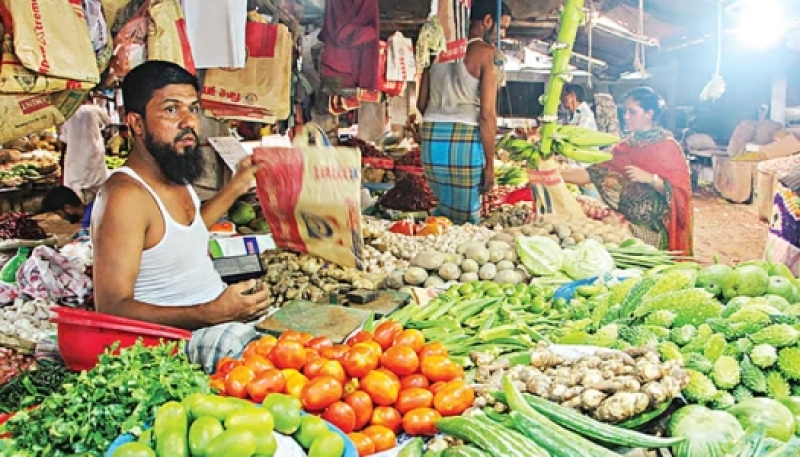- Southeast Asia Floods Kill Over 250, Thousands Displaced |
- Trump Vows to Halt Migration From ‘Third World’ Nations |
- Journos should strengthen themselves to secure rights: Fakhrul |
- Hong Kong’s deadliest fire in a century: How it spread |
- Khaleda ‘moved to Evercare CCU |
Rising Egg and Vegetable Prices Hit Low-Income Buyers

Vegetable market in the city
Low-income households in Bangladesh are increasingly struggling as prices of essential food items like eggs and vegetables continue to climb. With fish and meat largely unaffordable for many, these staples have become vital sources of protein and nutrition, but their rising costs are adding to the financial strain on vulnerable families.
A recent survey of Dhaka’s Agargaon, Mohakhali, and Karwan Bazar markets shows a sharp increase in vegetable prices. Round eggplants now sell for Tk 100–140 per kg, while long eggplants cost Tk 60–80 per kg. Other vegetables, such as sponge gourd, bitter gourd, and ridge gourd, are priced between Tk 60–100 per kg, and smaller vegetables like cauliflower and cabbage range from Tk 60–70 per piece. Tomatoes are among the most expensive, reaching Tk 140–170 per kg, and green chilies sell for Tk 220–260 per kg. Meanwhile, staple items like potatoes remain relatively stable at Tk 20–25 per kg, but other essentials such as radish, papaya, and bottle gourd have risen to Tk 30–70 per kg.
Market traders attribute the price hike to production and supply shortages. Abu Bakar, a vendor at Mohakhali, explained that vegetables arriving from production areas are far fewer than usual, forcing wholesalers to raise prices. Dulal Hossain, a Karwan Bazar trader, added that recent heavy rains damaged crops in several regions, reducing both supply and quality. Off-season vegetables, which are less abundant, are also commanding higher prices.
The rise in vegetable prices has had a knock-on effect on the egg and poultry market. Farm eggs are now selling for Tk 140–145 per dozen, while neighborhood retail prices reach Tk 150 per dozen, up from around Tk 130 just two weeks ago. Broiler chicken prices have increased by Tk 10–20 per kg, selling at Tk 170–180, while Sonali chicken is now priced at Tk 280–320 per kg, making even small poultry purchases difficult for low-income families.
Despite the upward trend, government authorities from the Department of Consumer Rights are monitoring markets to curb excessive price hikes. Traders themselves note that rising demand for eggs, combined with limited vegetable supply, is contributing to the increase.
Some imported goods have remained stable, providing minor relief. Local onions are priced at Tk 80–85 per kg, imported onions at Tk 60–65 per kg, and imported lentils are available at Tk 95–105 per kg, while local lentils have surged to Tk 140–150 per kg.
Consumers express growing frustration at the situation. Hamimur Rahman, who purchased vegetables at Karwan Bazar, said, “Traders are using supply shortages as an excuse to hike prices. With government monitoring inconsistent, low-income families are left to bear the brunt of these increases.”
Analysts warn that if supply disruptions continue, prices of eggs, vegetables, and other essential items may rise further, putting additional pressure on households that rely heavily on these affordable sources of nutrition. Meanwhile, traders urge that improving transport, storage, and supply management could help stabilise the markets and ease the financial burden on vulnerable populations.

